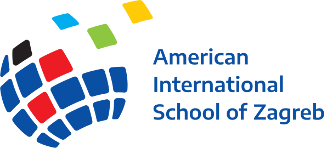ELL- English Language Learners
Students need English for two reasons: social and academic. While participating as fully as possible in the academic learning of the regular classroom, students whose first language is not English are given social, academic and language support from a trained ELL teacher.
Aims of the ELL Department
- to facilitate the orientation and integration of new ELL students into their new school environment
- to provide a variety of positive opportunities for the ELL students to establish and maintain social relations within the school through the use of English language
- to provide the students with the language skills and strategies necessary to work successfully in the mainstream classes
- to assist the students to integrate successfully into the content-based academic program by making the activities and texts of mainstream classes accessible
- to support language learning by working cooperatively with the mainstream teacher
- to provide as much individualized instruction as possible in order to give optimal support to each student’s linguistic development
- to foster linguistic and cultural awareness among students, teachers, and parents
Course is designed to give students the opportunity to meet challenges and develop positive behaviors in fitness, individual and team sports and movement activity for a lifetime.
This course begins with the Black Death and its impact on feudalism and ends at the start of the 1900s. Using primary sources, students will analyze information to use in support of essays that address essential questions for each topic. This course provides students with the foundation skills for future studies in Social Studies.
Following Grade 8 Physics class, Grade 9 Science course will look more closely into the next scientific discipline: Biology. The class is constructed as an introduction to different aspects of biology, where students can get an overview of the broadness of what the field implies. The topics covered are (but not limited to):
- Chemical Basis of Life
- Cells & Cellular Processes
- Genetics
- Evolution & Biodiversity
- The Human Body
- Ecology
Sources:
- Levine, Miller: Biology (Pearson)
- Levine, Miller: Biology - Student Workbook (Pearson)
- Standards:NGSS
In order to become a thoughtful, productive citizen in the 21st century, an individual must think critically, read widely with full comprehension, and write from a perspective of strength, truth, and conviction. Within this English course, students will hone the composition skills needed to meet the challenges of formal academic writing as well discover and harness the inspiration needed to write creatively. A focus of this course is to study representative works from world literature in relation to the historical and cultural forces which influenced them. This class is designed to promote academic excellence in English language arts through enriching experiences in literary analyses, vocabulary development, grammar usage and application, and written and oral communication—through both formal and creative expression.
The course is a part of 2-year integrated course in Mathematics (based on US core curriculum and AERO standards) that aims to prepare students for further IB Diploma Program as well as for external exams requirements.
Main domains: Algebra, Geometry, Statistics & Probability, Pre-Calculus.
Goals:
- students will consolidate the key concepts from previous Maths years and learn new skills, methods and techniques for solving problems and describe mathematical models;
- students will apply the problem-solving experiences to real life situations.

Social networks